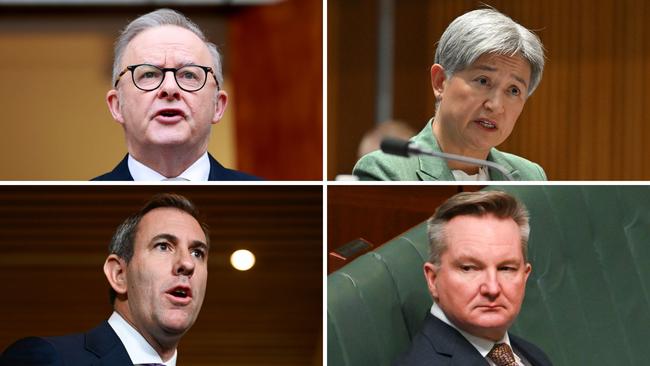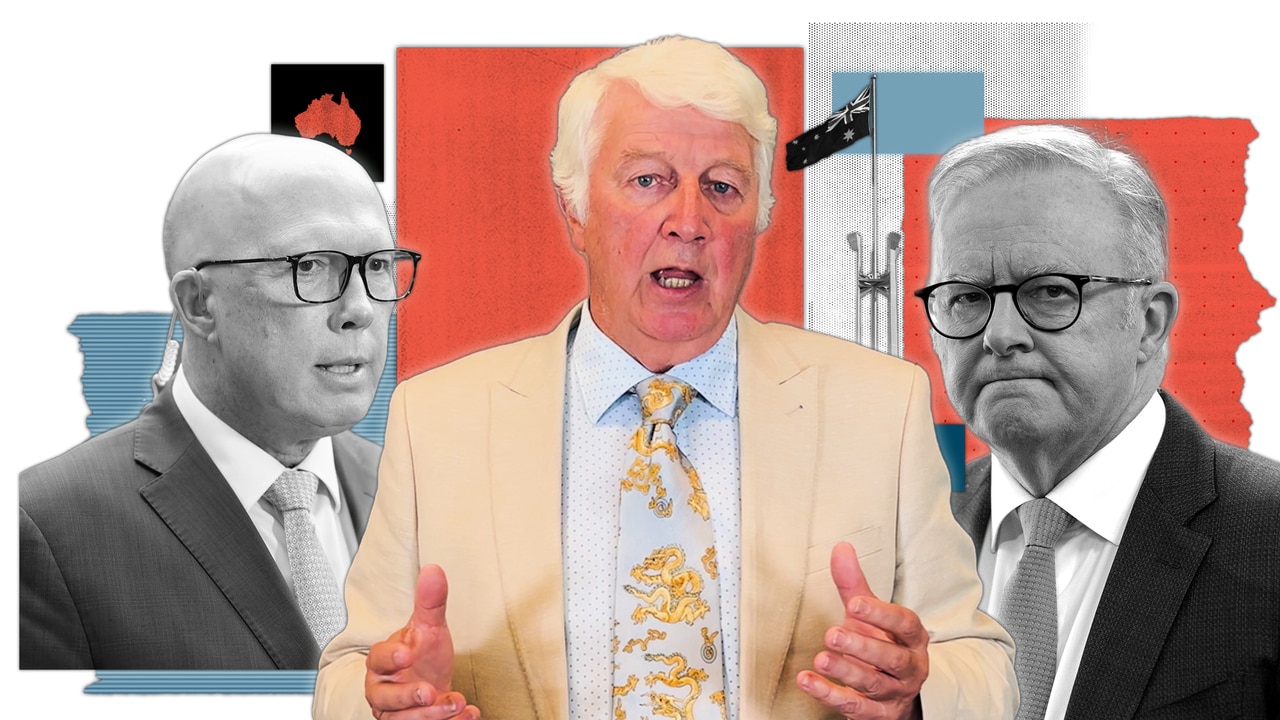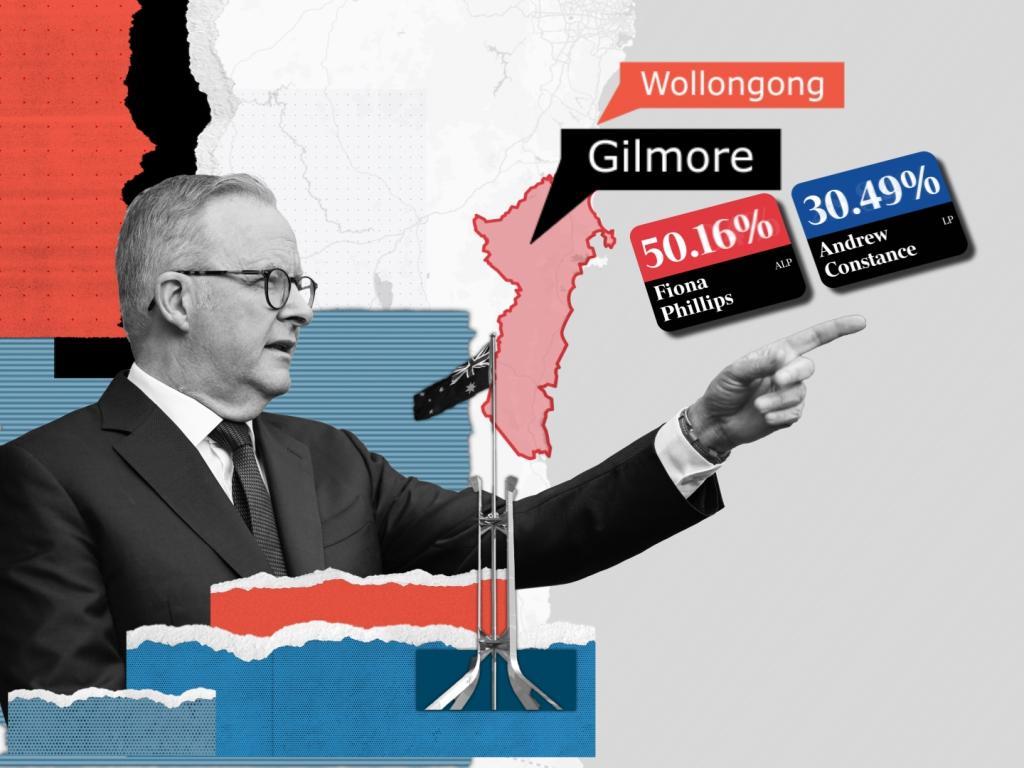Just give it to us straight, ministers – why should you get back into office?
Across the next five weeks voters will be looking for answers but they are unlikely to get them without the right questions. So, I thought it might be worth listing some crucial queries for the government.

When Jim Chalmers was asked about the nation’s soon-to-be $1 trillion debt on the morning after the budget, he responded with a howler.
“First of all,” he told Sally Sara on ABC Radio National, “gross debt this year is $177bn lower than when we came to office.”
I almost choked on my Weeties. The government’s own budget papers demonstrate this simply was not true. At the end of June 2022 debt stood at $895bn and the budget tells us the figure will be at least $940bn in June 2025, before topping $1 trillion in 2026.
So I kept listening, eagerly awaiting the next question to Chalmers: “Treasurer, that is simply not true, your own budget papers show gross debt has swollen by at least $45bn since you took office and will increase by more than $80bn in the coming year, so shouldn’t you be up-front and honest with voters about the debt burden?”

Sadly, that question did not come – the falsehood stood unchallenged – as Sara moved on to other topics.
Such are the frustrations of our political debate. Across the next five weeks voters will be looking for answers but they are unlikely to get them without the right questions. So, I thought it might be worth listing some crucial queries for the government.
These are the questions I would like Chalmers, Anthony Albanese, Chris Bowen, Penny Wong and others to answer during the three dozen campaign days ahead.
Have living standards improved or fallen after three years of Albanese Labor? A $275 annual cut in electricity bills was promised, along with reduced mortgages and a lower cost of living, but what materialised?
If the lowest personal income tax rate is too high, why was it not lowered when the stage three tax cuts were adjusted? Why is it not being lowered in July 2025 rather than 2026?
Why put a heavy burden on taxpayers and the private sector with climate and energy policies designed to reduce carbon emissions when there can be no environmental benefit because global emissions continue to rise? Why deliberately create economic pain when there is no climate gain?
If a renewables-plus-storage electricity grid is cheap and reliable, why does it require subsidies and grants? If a renewables-plus-storage model is affordable and plausible, why has no modern economy implemented such a model and why has no other developed economy even attempted to make the switch?

If the expensive transition to renewables (including generation, transmission, storage and firming) has pushed electricity prices upwards, how can more of the same deliver the opposite outcome?
Why should regional and coastal communities be forced to put up with wind farms, solar factories, offshore turbines and transmission projects to satisfy the impractical green ideals of Greens and teal voters in city seats?
If nuclear energy is too expensive, why do 50 countries use it and why have 31 nations committed to triple their nuclear energy output by 2050? Given the International Energy Agency claims that half of the emissions reductions to get to net zero will have to come from technology not yet in commercial use, which technologies will Australia employ to get to net zero?
The IEA also declares nuclear energy is essential to achieve net zero, so how can Australia reach that goal without nuclear?
If the United Arab Emirates can build and commission four 1400MW nuclear power plants in little more than a decade, why is it beyond Australia?

How much government money has already been spent on green hydrogen projects? With at least 10 major green hydrogen projects scrapped, despite the promise of massive government subsidies, should Labor admit its “green hydrogen revolution” will not be happening?
Given the 2024 net immigration target was 260,000 and it resulted in net migration of 335,000, how many people will migrate here under the 2025 260,000 target?
If the federal government does not have the legal authority to deport or detain dangerous criminal non-citizens, what will it do to gain such powers?
Why did the government threaten to deport an American influencer who picked up a baby wombat when it has failed to deport Islamist hate preachers and it issued 3000 tourist visas to people from Gaza without thorough security checks?
If corporate tax rates are higher in Australia compared with other nations, why would companies choose to invest here? If taxes are higher here, should we expect corporations to repatriate profits elsewhere?
If Indigenous cultural heritage claims can be used to block developments, should we ensure there are effective ways to investigate and verify those claims? If taxpayers fund governments to make decisions about projects, including after environmental and Indigenous assessments, why are taxpayers also forced to pay for activists at the Environmental Defenders Office that seek to overturn or block those decisions?
What is the point of having official Indigenous heritage bodies if their views on projects are pushed aside in favour of less representative groups? Have Indigenous cultural heritage claims gone too far?
If we allow government debt to reach $1 trillion, are we not foisting an unfair tax burden on to our children and their children? Is it responsible to live beyond our means now and leave future generations to pay for it?
Has government become too large, raising and spending too much money, running too many organisations and intruding on too many aspects of our lives? Is the National Disability Insurance Scheme sustainable or is it spending too much money with too little accountability?
Do we have the requisite defence equipment and personnel to defend our nation? Would it be cheaper and more effective to buy all our AUKUS submarines from the US rather than try to build them here?
If, as the Prime Minister recently claimed, Australians stand up to bullies, why did he make excuses for China when its navy bullied us with unannounced live-fire exercises in the Tasman Sea? Why did a commercial airline pilot know about these exercises before our defence forces?
Are our children being taught about the social and economic successes of our country? Do high school students understand the basics of our economy and governance?

How can the public sector become more productive when public servants are given the default option of working from home?
How have the additional 36,000 federal public servants employed over this term improved services or made government more effective?
Does Labor still believe the government sector should be no larger than 25 per cent of GDP? If so, when will it return to that level?
Are we over-regulated? How can red and green tape be cut?
Is it acceptable for a Muslim preacher to front a mob on a Sydney street and celebrate the slaughter of innocent Israelis? Is it acceptable for a similar mob to chant “F..k the Jews” on the steps of the Sydney Opera House? If not, why did the federal government do nothing in response to these events on October 8 and 9, 2023? Has the government’s constant and unjustified criticism of Israel helped to fuel anti-Israeli sentiment?

If record education funding has not improved results relative to other countries, is it not time to look at other factors? Has the curriculum become crowded with social engineering and politically correct topics? Does education need to get back to the basics and how can a federal government make that happen?
Finally, if a country deliberately abandons its natural economic advantage of cheap energy, shuts down export industries such as the live cattle and sheep trade, and constrains and maligns other leading exports such as coal, gas and uranium, is that country not engaged in self-harm? Why would anyone choose a government that inflicts harm on its own country?





To join the conversation, please log in. Don't have an account? Register
Join the conversation, you are commenting as Logout